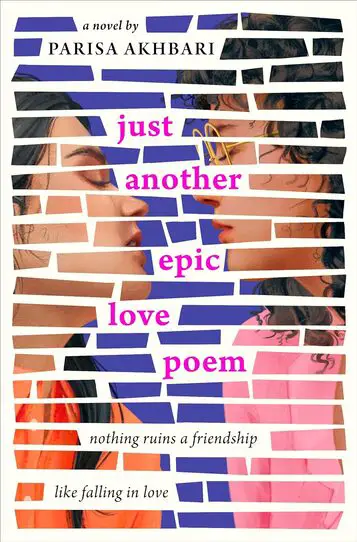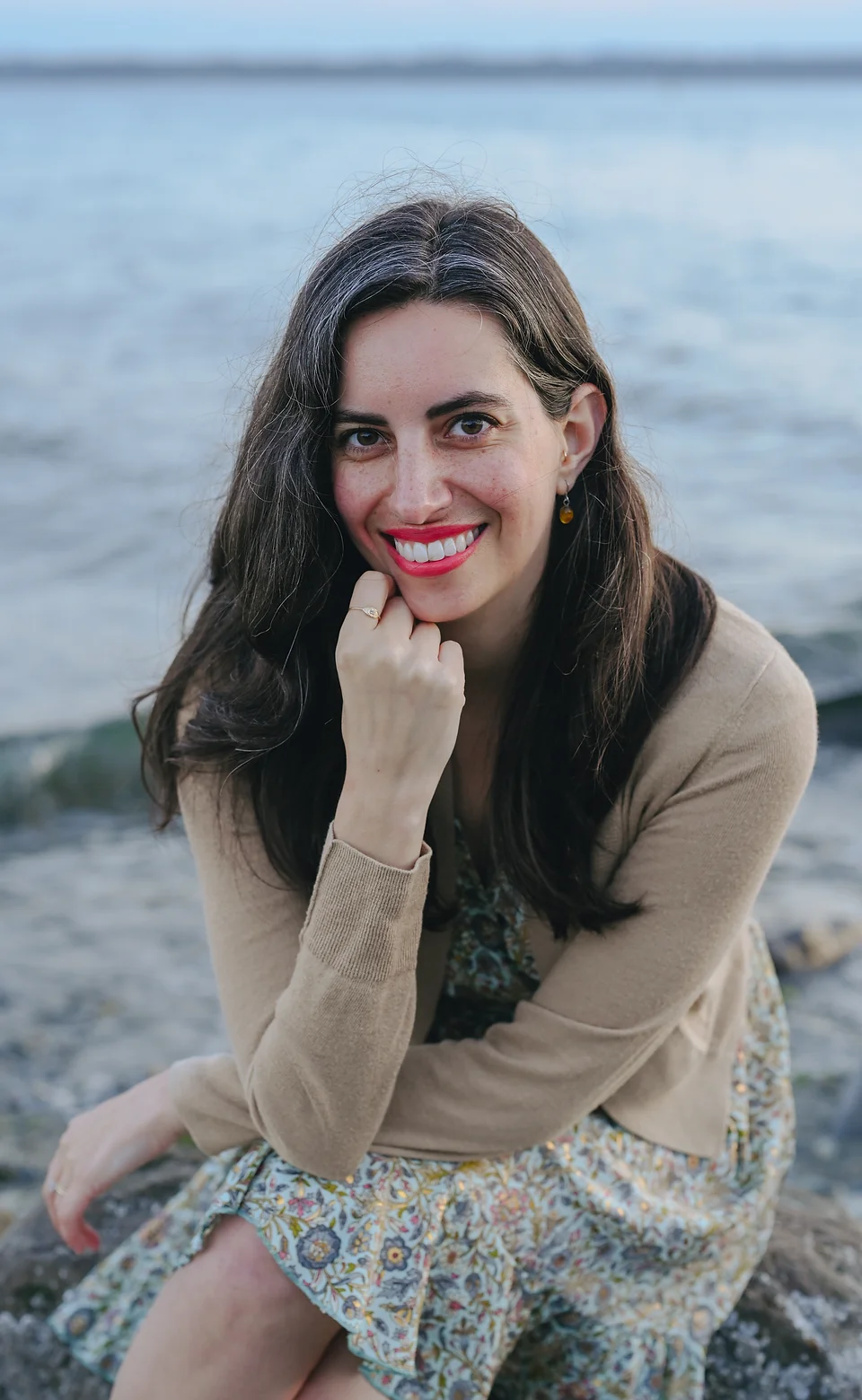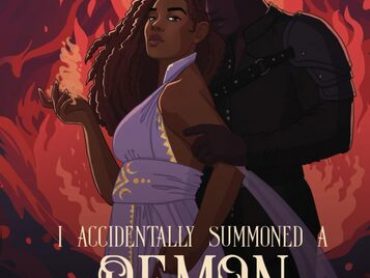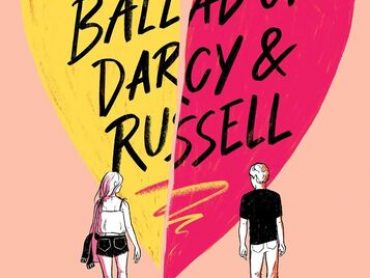Author Parisa Akhbari is using her own experiences of growing up as a queer Iranian American to help other young people feel seen in her debut YA novel Just Another Epic Love Poem. Best friends and high school Seniors Mitra Esfahani and Bea Ortega share everything in their never-ending epic poem. The truths written into the poem may change their friendship forever as it is revealed that Mitra is in love with Bea. Young Entertainment spoke with Parisa to learn more about the importance of representing queer relationships and her love for poetry.
Young Entertainment: Just Another Epic Love Poem is your debut novel, when did you first know that you wanted to write this novel?
Parisa Akhbari: In my day job as a mental health therapist, I’ve seen how powerful it can be for young people to find their identities reflected in books, movies, and TV. It normalizes their experiences and makes them feel seen and understood. I didn’t have that reflection growing up, and I wanted to tell a story positioned at the intersections of my identities, because that’s a story only I can tell. I’m reminded of Toni Morrison’s quote, “If there’s a book that you want to read, but it hasn’t been written yet, then you must write it.” I wanted to write toward an understanding of my own experience as a young Iranian American kid in Catholic school, who was closeted but very slowly grappling with my understanding of queerness.
YE: The novel touches on friendships turning into more, why is that something you decided to base the novel on?
PA: I think there are some nuances to queer friendships, and the line between friendship and relationship can be a bit harder to navigate as a queer teen. There can be an intimacy in friendships between teen girls that can also translate to romantic relationships, and that gets confusing. That’s something I hadn’t seen explored in young adult literature, and I wanted to create space for it in my novel. The main characters Mitra and Bea are moving from this intensely close best friendship toward something romantic, and they have all these juicy questions to work through. When is a touch platonic and when is it not? When can they say “I love you” as friends, and when does that sentiment take on a different meaning?
“I wanted to write toward an understanding of my own experience as a young Iranian American kid in Catholic school, who was closeted but very slowly grappling with my understanding of queerness.”
YE: Can you speak on the importance of having a queer relationship in your novel and what the representation of it in literature means to you?
PA: Growing up, I didn’t see queer relationships reflected in the young adult novels I read and I was a big reader. If I had seen queer characters and queer experiences represented as normal and healthy, it would’ve done a great deal to counteract some of the homophobic messages I had internalized from Catholic school. I also know how important it is for young people to see mirrors of themselves in the media they consume. I hope this novel can be a mirror for teens, and even adults, who can relate to the experiences of Mitra and Bea.
YE: In Just Another Epic Love Poem there is a never ending poem, and the book itself is told in lyrical, confessional prose with snippets of poetry. What about that format called to you?
PA: I wanted to use a format for the novel that parallels the diverse ways in which young people communicate. Talking face-to-face is only one way young people connect. They’re also following all these other threads of contact: text messages, notes passed at school, emails, video chatting, and so on. Just Another Epic Love Poem weaves a kind of tapestry of all these different methods of communication.
“There’s a sense of hope, optimism and promise that feels inherent in YA. Teens have their whole lives ahead of them, and the genre embraces that.”
YE: Where did the inspiration for the story and the two characters of Mitra and Bea come from?
PA: I grew up in Catholic school from kindergarten onward, and transferred into a public, secular high school for my junior year. The transition from strict, Catholic education to a large public school was jarring and also freeing. I wanted to imagine someone taking the opposite journey I took. What would it be like for a queer Iranian American kid, who has had no experience in the realm of religious education, to suddenly be thrust into that environment? For a character like Mitra to survive the transition, I figured she’d have to stay small and quiet, and she would keep herself safe by keeping her head down. She and Bea would create their own world within the pages of their never-ending poem, and that might be the only place they could truly be themselves. The joy for me, then, was watching what happened as their world burst out of the pages of their poem to take up space in their lives and in their school.
YE: Did you ever write a never-ending poem when you were a teenager?
PA: I wrote and read a lot of poetry in high school, and I was a student member of my high school’s literary journal, where we edited and published creative student work. I never wrote a never-ending poem, but poetry was part of the fabric of my life. It’s also deeply woven into Iranian and Persian cultural history, and so I often have the sense that the things I’m writing today are informed by and tethered to the writings of ancestors in Iran. I see it as a kind of never-ending continuation of a practice that has been around for centuries.
YE: What is something you learned about yourself as a writer while writing this novel?
PA: With everything I write, there’s a central question or a beating heart that propels the narrative. For Just Another Epic Love Poem, the question at the heart of the novel for me was, Is it worthwhile to be vulnerable and seek out connection with others, when you risk rejection or pain? This is Mitra’s driving question throughout the book. In writing toward this question, I learned that I tend to write toward the hard things. I write toward a deeper understanding of myself, and I write to make sense of my experiences and the world around me. I write toward healing.
YE: How are the characters of Mitra and Bea similar to each other, and how are they different?
PA: After five years of best friendship, Mitra’s and Bea’s lives are so intertwined, and they’re viewed as interchangeable by their peers in Catholic school. They’ve established all these inside jokes and ways of communicating that blend seamlessly with one another. Still, there are some significant differences between the two that set them apart, and those differences ultimately spark conflict. Bea is much more open, messy, social, and experience-seeking. Mitra is guided by her fear and anxiety, so she’s a big fan of rules and order, she’s quiet and contained, and she’s incredibly fearful of change. These are the places they butt heads!
YE: How would you illustrate the novel in 10 emojis?
🏳️🌈 ⛪ 🙊 📖 👩🏽❤️💋👩🏽 🌸 🪬 🥰 😭 🥹
YE: Is there a scene or quote from Just Another Epic Love Poem that is your favorite?
PA: My favorite quote comes toward the end of the book: “I know that ours is the realest kind of story: a story still unfolding. A never-ending thing.”
YE: What is the best part of writing a young adult novel?
PA:I love the immediacy of young adult literature. The emotions and inner experiences are right at the surface. There’s a sense of hope, optimism, and promise that feels inherent in YA. Teens have their whole lives ahead of them, and the genre embraces that.
YE: Is there another genre you hope to write one day?
PA: I’d love to explore magical realism or some light fantastical themes.
Consider This:
- Use your own experiences that you have survived and learned from in your art. People can relate when you are honest and vulnerable.





